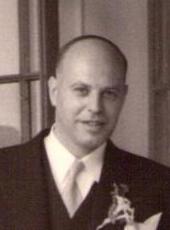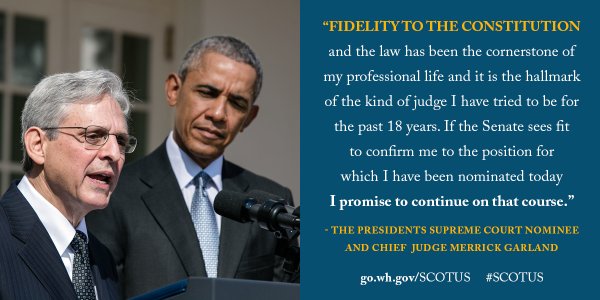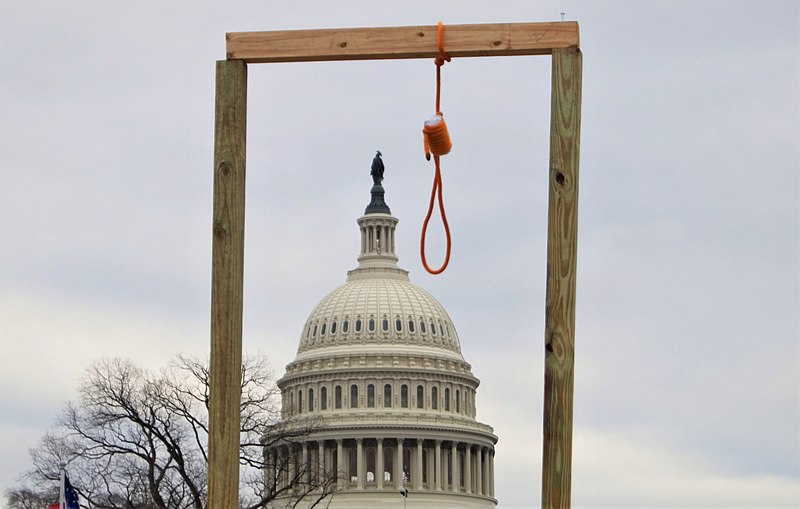This 2020 commentary has stayed hidden in Views' draft file for reasons perhaps as obvious as the reasons for posting it now.
Every deed in the grand manner on this earth will in general be the fulfillment of a desire which had long since been present in millions of people, a longing silently harbored by many. Yes, it can come about that centuries wish and yearn for the solution of a certain question, because they are sighing beneath the intolerable burden of an existing condition and the fulfillment of this general longing does not materialize.
These words are not Donald Trump’s. “The intolerable burden that yearns for a solution” did not refer to the continuing dispossession of America’s First People, or the descendants of men, women children whose labor produced the wealth of their white kidnappers.
They are the words of Adolf Hitler in Mein Kampf, the book Ivana Trump said her husband kept in his bedroom.

Nations which no longer find any heroic solution for such distress can be designated as impotent, while we see the vitality of a people, and the predestination for life guaranteed by this vitality, most strikingly demonstrated when, for a people’s liberation from a great oppression, or for the elimination of a bitter distress, or for the satisfaction of its soul, restless because it has grown insecure – Fate some day bestows upon it the man endowed for this purpose, who finally brings the long yearned-for fulfillment.
Adolf Hitler, Chapter 8, The Strong Man Is Mightier Alone, Mein Kamp
A Man Endowed for this Purpose: To Save the Nation
The president is a moral predator who feeds on fear of “the other.” Predators show no respect or compassion. Not for the sick and dying during the new coronavirus pandemic. Not for African Americans disproportionately affected by COVID-19. Not for at-risk first responders: doctors, nurses, orderlies, and hospital custodians and kitchen staffs begging for more masks and ventilators. Not for journalists who bring facts to disinformation press conferences. They show no respect for anyone or anything and hold nothing as sacred. They pose with Bibles in front of churches, but never read them.
Is it unreasonable to suppose that a president at risk of losing his fight to keep his tax returns from public scrutiny, fearful of losing his bid for re-election in November, and facing multiple criminal charges after leaving office would use the playbooks his first ex-wife and ghost writer alleged to have been by his bedside?



The Supreme Judge of the ________People
As news of the covert operation began to leak, Reich “Minister Without Portfolio” Joseph Göring ordered police stations to burn “all documents concerning the action of the past two days.” Newspapers were told not to publish the names of the dead. Minister of Public Enlightenment and Propaganda Joseph Goring took to the airwaves to announce to the nation that Hitler had prevented traitors from overthrowing the government and throwing the country into turmoil. Eleven days later (July 13, 1934) Hitler gave the nationally broadcast speech to the Reichstag (the German equivalent of the U.S. Congress) in which he conflated the nation and himself. The strong man who made Germany great again proclaimed himself “the Supreme Judge of the German people” and threatened opponents as traitors.
If anyone reproaches me and asks why I did not resort to the regular courts of justice, then all I can say is this. In this hour I was responsible for the fate of the German people, and thereby I became the supreme judge of the German people. I gave the order to shoot the ringleaders in this treason, and I further gave the order to cauterise down to the raw flesh the ulcers of this poisoning of the wells in our domestic life. Let the nation know that its existence—which depends on its internal order and security—cannot be threatened with impunity by anyone! And let it be known for all time to come that if anyone raises his hand to strike the State, then certain death is his lot.
Adolf Hitler speech to the Reichstag, July 13, 1934.
Concerned with potential objection from the Reichstag and the courts, Hitler acted quickly to push official approval by the Reichstag the expansion of his powers. The change was approved immediately and retroactively, serving as official justification for the massacre of the Night of the Long Knives. On July 3rd his administration’s cabinet approve a measure that declared, “The measures taken on June 30, July 1 and 2 to suppress treasonous assaults are legal as acts of self-defense by the State.”
The Blossoms of Disrespect
Had journalists asked former civil rights and peacemaking activist William Sloane Coffin what he would say about the self-proclaiming law-and-order U.S. president and his loyal partisans in Congress, I imagine he might repeat what he said years ago of public figures who insist their language bears no responsibility for hate and violence.
“Trent Lott, Gary Bauer, Pat Robertson, and Jerry Falwell– all insist their words contribute nothing to an atmosphere that might legitimate anti-gay violence. Don’t they know that the seed of disrespect often blossoms into hatred?”
William Sloane Coffin Jr., Credo (WJK)
All who seek a respectful future do well to remember how quickly good gets twisted into evil, and how even a society’s best intentions for a just society can fall prey to the law of unintended consequences: the end of a Constitutional democratic republic by little men with little mustaches and deranged men with orange hair.
Gordon C. Stewart, Chaska, MN, July 8, 2020.










